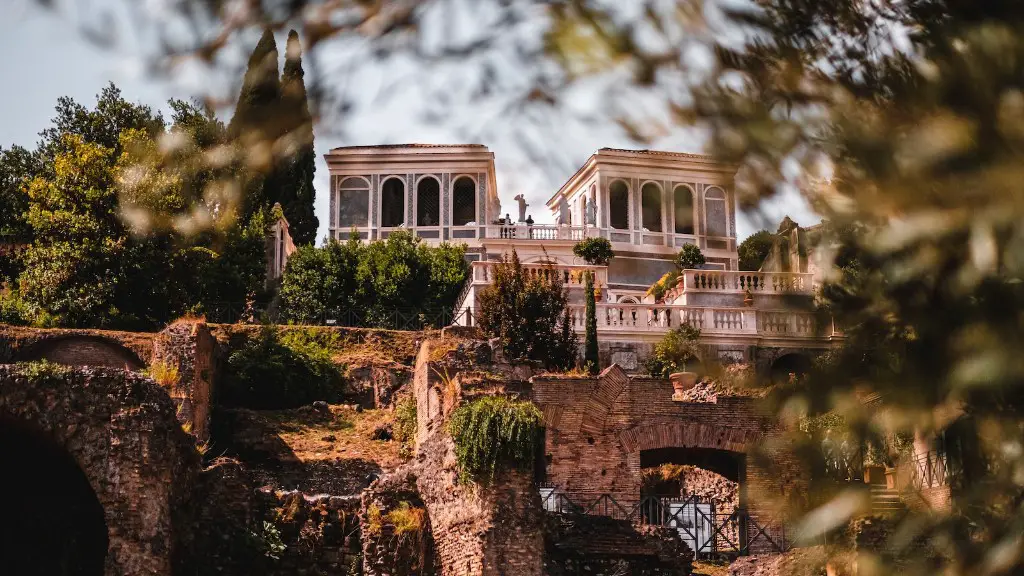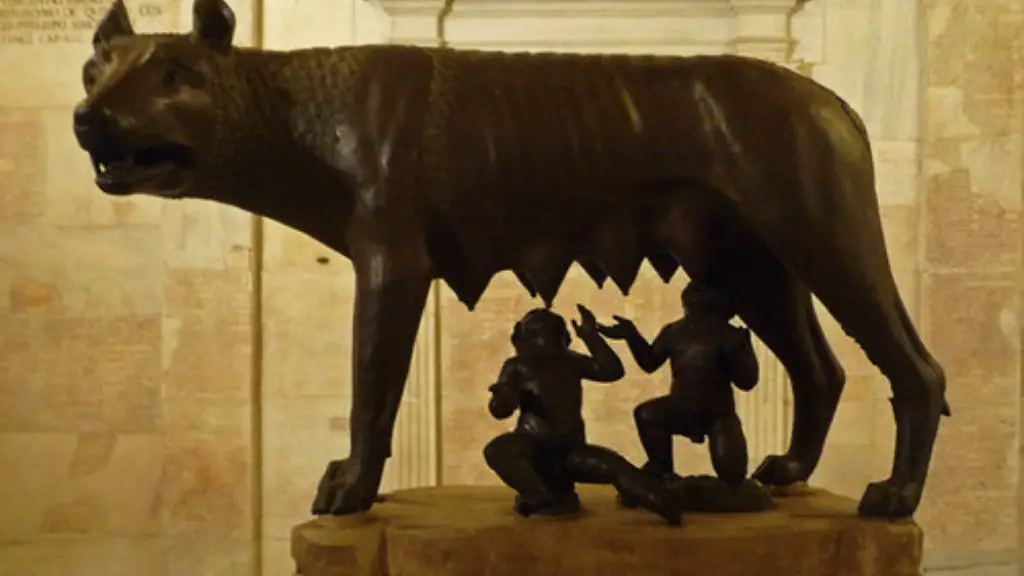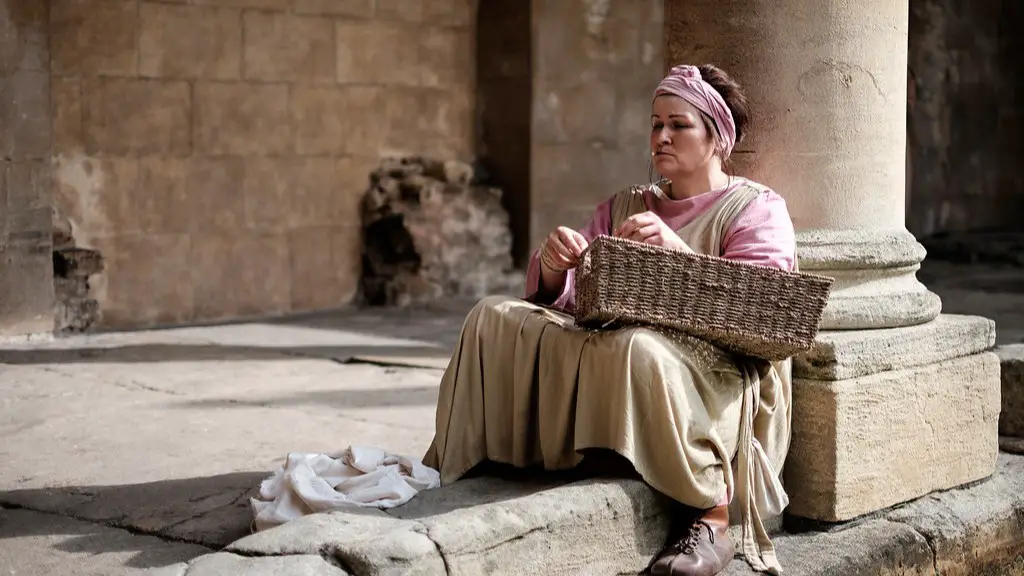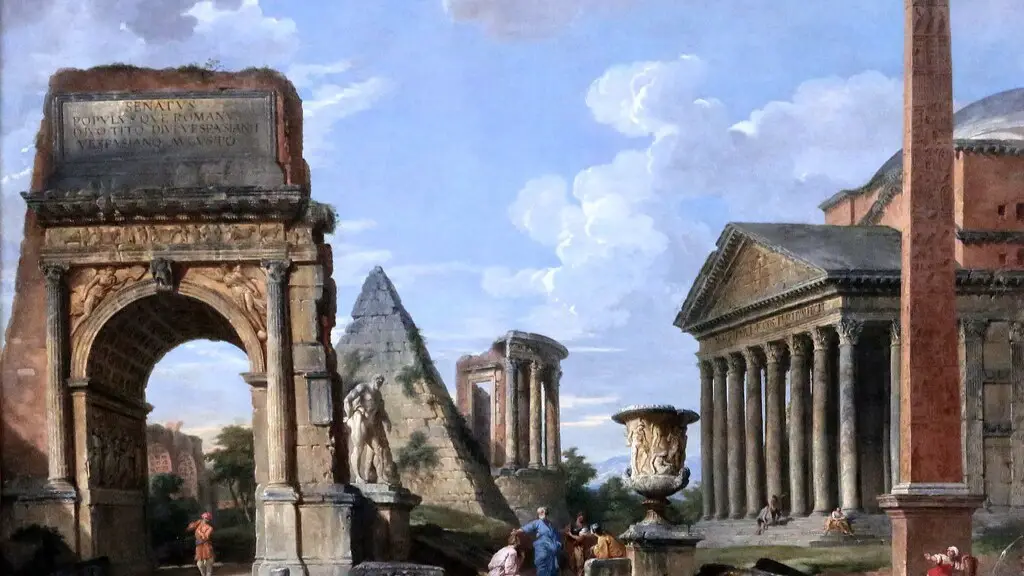If you want to feel like a true Ancient Roman, you can’t go wrong by bathing in olive oil! This may seem like a strange beauty regimen to some, but it’s actually quite beneficial for your skin. Not to mention, it’s incredibly relaxing. Here’s how to do it:
The process is actually quite simple. You will need:
– A bowl or container big enough to fit your entire body
– Extra virgin olive oil
– A small cup or bottle to pour the oil into your hands
– A washcloth
– A towel
– Optional: a few drops of essential oil for scent (lavender is nice!)
Here are the steps:
1. Fill your bowl or container with warm water.
2. Pour the olive oil into your hands and massage it into your skin.
3. Use the washcloth to gently scrub your skin.
4. Rinse off with the warm water.
5. Repeat steps 2-4 if desired.
6. Towel off and enjoy your soft, healthy skin!
How did Romans bathe with oil?
The strigil was a common tool in Roman times, used to scrape off the accumulation of oil and sweat from the skin. Patrons of the baths would rub olive oil onto their skin and then move through a sequence of heated and cooled rooms before a slave used a strigil to remove the oil and sweat. The strigils were likely used either outside in the exercise area or in a special “oiling room” called a destrictarium.
The Roman Empire didn’t have soap, but they did have olive oil! People would rub olive oil all over their bodies and then scrape it off with a strigil. This would remove all the dirt and grime, and leave the skin silky and moisturized.
Did Romans put olive oil on their skin
Before the advent of soap, Greeks and Romans would bathe using olive oil lather. They would scrape it off with a strigil, a small handheld curved blade. Wealthier households would scent the olive oils with perfumes before bathing. Olive oil was used by Olympians (especially wrestlers) to slicken up the skin.
Olive oil has been used for centuries for a variety of purposes. In addition to being an integral part of the diet, olive oil was used to make perfume, treat maladies, conduct religious rituals and provide lighting inside houses and temples.
Olive oil is a symbol of health and beauty and has been used as such since ancient times. The Egyptians used it to embalm the dead and the Greeks used it in their baths. It was also used as a base for perfumes and was believed to have medicinal properties.
The use of olive oil in religious ceremonies is also well documented. It was used in the consecration of altars and in the anointing of priests and kings. It was also used in the purification of lepers.
The light provided by olive oil lamps was said to be particularly pure and was used to light the way to the temples.
The many uses of olive oil show that it was an important part of life in ancient times. It is still an important part of the Mediterranean diet and is used in a variety of ways all over the world.
What did the Romans use instead of soap?
The Greeks and Romans were some of the first people to use running water and public baths, but they didn’t use soap to clean their bodies. Instead, they would immerse themselves in water baths and then smear their bodies with scented olive oils. They would use a metal or reed scraper called a strigil to remove any remaining oil or grime.
A tersorium was a stick with a vinegar- or salt water-soaked sponge attached that was used to wipe oneself after relieving oneself in a public latrine in ancient Rome.
What happens if you bath in olive oil?
The olive oil bath is excellent for making your skin moisture supple, smooth and young looking Olive Oil Body Lotion For Moisturizing: You need not depend on expensive body lotion to make your skin look beautiful Immediately after you have the shower, apply and light layer of extra virgin olive oil on your skin.
The Ancient Romans were very ingenious when it came to heating water for their baths. They developed a system that used water, heated in fiery furnaces under the raised floors of the baths. The resulting steam was channeled through special chambers under the floors and in the walls. This mechanism was very efficient – so much so that unless bath floors were very thick, they would be too hot to walk on.
What did the Romans use for hygiene
Hygiene in ancient Rome was very important and included public baths, toilets, exfoliating cleansers, and public facilities. Although they used a communal toilet sponge, they still had high standards of cleanliness.
Olive oil is a healthy choice for your skin care routine. It contains vitamin E, which helps reduce the appearance of fine lines and wrinkles. It also contains antioxidants that help protect against free radicals, which contribute to aging. Choose an olive oil that is cold-pressed and pure for the best results.
Do Italians bathe in olive oil?
Other benefits of olive oil include its ability to:
-Moisturize the skin
-Reduce inflammation
-Fight acne
-Reduce the appearance of scars
-Soften the skin
-Act as a natural sun protector
Olive oil is a great way to keep your skin healthy and hydrated, but it’s important to choose a high-quality product that doesn’t contain any additives or chemicals. In addition, be sure to wipe off any excess oil to prevent clogging pores or trapping bacteria.
Why did Romans wash with olive oil
The process of cleansing oneself with oil and then removing it with a strigil was a common ritual for men in Roman times. The oil was believed to have exfoliating properties and was thought to draw impurities out of the pores. The strigil was a long-edged metal tool that was used to remove the oil and sweat from the skin.
olive oil can be contaminated by coliform bacteria if the total phenolic compounds content is too low. These bacteria can survive and reproduce in this environment, contaminating the oil. To avoid this, it is important to ensure that the phenolic compounds content is sufficient.
How did they make olive oil in biblical times?
Although the process of making olive oil has changed over the millennia, the basic principle of using stone mills to grind olives into a paste remains the same. This time-honored method of production results in a product that is highly prized for its quality and flavor.
Cleopatra was said to have used goat’s milk to maintain her beautiful skin. Though most of us don’t have the luxury of a daily dip in a goat milk bath, we can use the next best thing – Goat Milk Soap. Goat Milk Soap is said to have many benefits, including being gentle on the skin, providing moisture, and helping to reduce inflammation.
What did the Romans use instead of toothpaste
The ancient Greeks and Romans used some pretty unorthodox ingredients in their toothpastes, including crushed bones, oyster shells, and powdered charcoal. While these ingredients might not sound very pleasant, they were actually quite effective at cleaning teeth and neutralizing bad breath.
One of the most pressing problems in the absence of soaps and detergent was how to remove stains, dirt, and grease. The Romans discovered an effective stain-remover: human urine with its high ammonia content. Urine-based cleaning agents, euphemistically known as ‘chamber lye’, were used well into the 19th century.
Conclusion
There is no one answer to this question, as there is no one way to bathe like ancient Romans. However, some tips on how to include olive oil in your bathing routine could include using it as a natural soap alternative, adding it to your bathwater for a relaxing and moisturizing experience, or using it as a body oil after showering. Whichever way you choose to use olive oil, make sure to enjoy the process and the benefits that come with it!
The ancient Romans knew how to take care of their skin, and one of the best ways to do so was by using olive oil. Here are some tips on how you can enjoy a luxurious olive oil bath like the Romans did:
1. Heat up some olive oil in a pan until it is warm, but not too hot.
2. Pour the warm olive oil into a bathtub full of warm water.
3. Add some drops of lavender oil or another essential oil of your choice.
4. Soak in the bath for 20-30 minutes.
5. Rinse off with warm water.
6. Apply a light olive oil moisturizer to your skin.
By following these steps, you can enjoy a relaxing and beneficial olive oil bath like the ancient Romans did!





